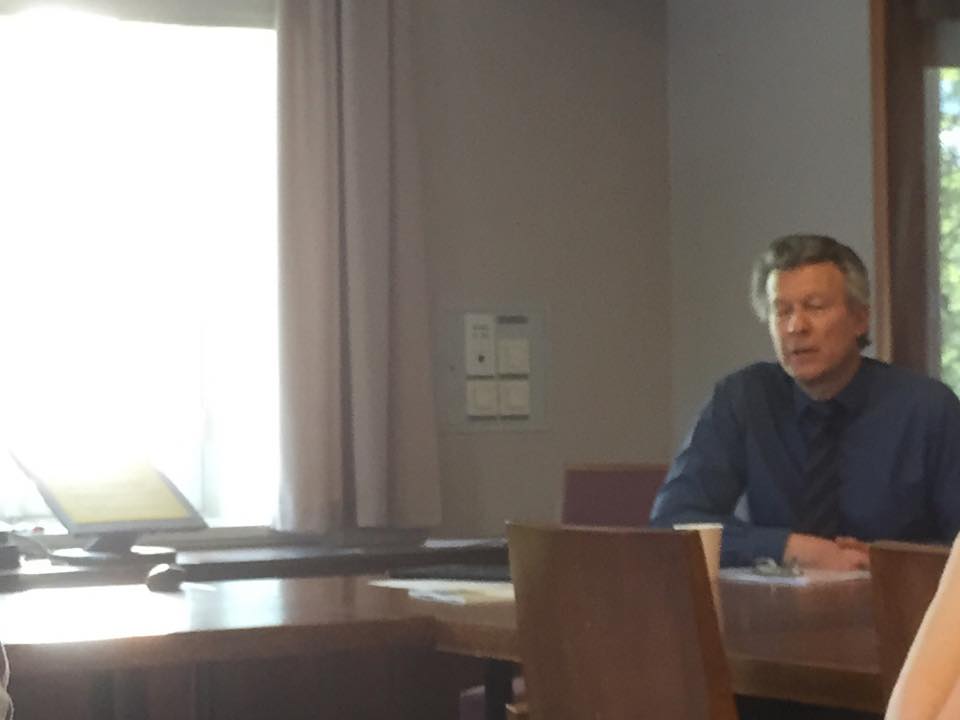 Peter Golding of Northumbria University. Picture by Turo Uskali.
Peter Golding of Northumbria University. Picture by Turo Uskali.
Communication research will change in the future, concluded a panel discussion held in University of Helsinki, Finland. The discussion revolved around the recently ESF Forward Look -report on the same subject published about a year ago, titled Media in Europe: New Questions for Research and Policy.
One of the authors of the report, Peter Golding of Northumbria University, began the discussion by talking about the four main themes of the report, such as changes and challenges of the political participation in digital age, about so-called digital divide that is potentially creating two-tier media users and citizens, content creation and creative industries, and mediated identities. Golding discussed also the concrete recommendations based on their study, concerning research approaches and infrastructure.
Matti Sintonen of University of Helsinki raised the question of media studies becoming a coherent and mature discipline. He noted that media and communication studies are usually both basic and applied research.
Anu Kantola, also from University of Helsinki talked about the new political struggles and media’s role in them. She noted that the whole media system is also in flux, not just the class-system outside. Kantola noted also that media studies should encompass sociology and politics. If research only focuses on technology, it can become onesided and boring. She noted that researchers should also try to contextualize their research more. Affects and passions matter, Kantola reminded. Lastly, Kantola noted that researchers should focus more closely on silence and silent power actors, those who work in the shadows.
Entertainment was mentioned only six times in the whole report, noted Susanna Paasonen of University of Turku. However, it has become important for media research. For example gamification has proven to be important for education.
Lastly, Hannu Nieminen of University of Helsinki talked about the role of media. What kind of imagined communities are the media constructing today? In today’s world technical access and connectivity is already on good level and increasing still as basic skills all over are improving.
Read the whole report here (in PDF). Also, see the Bambuser-video captured by Turo Uskali of University of Jyväskylä here.